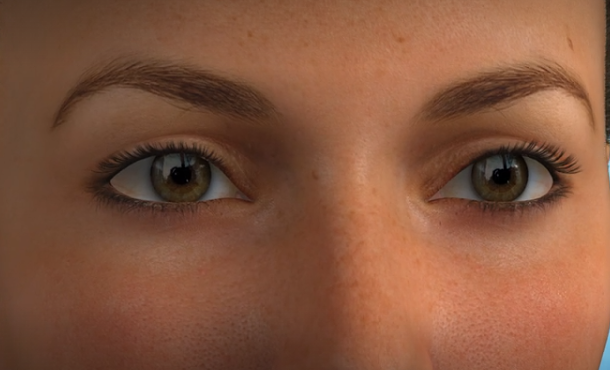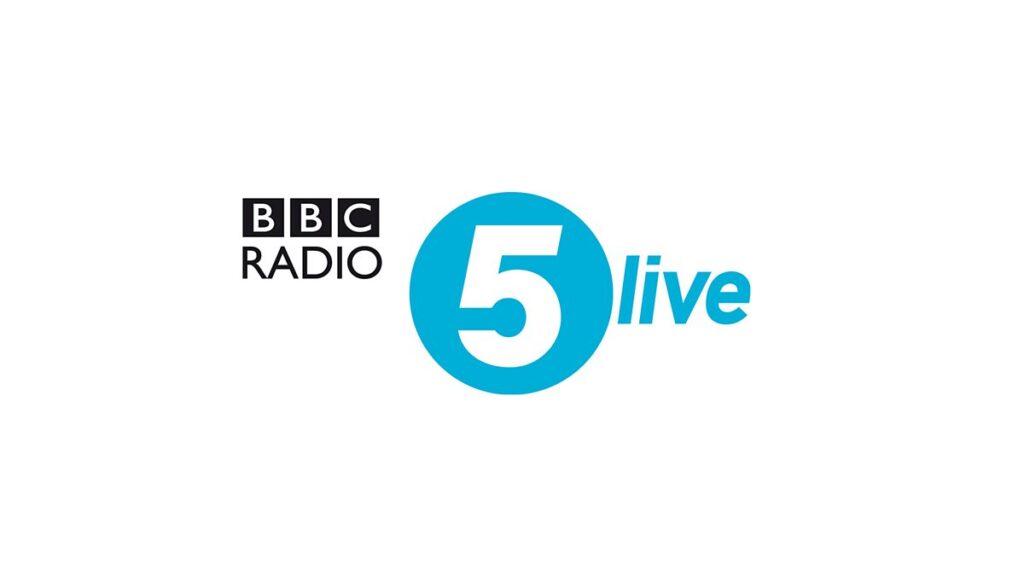Who Is It Suitable For?
Blepharoplasty surgery in Manchester is suitable for those with excessive skin and/or noticeable fat deposits. Excessive skin can even interfere with vision and removing the excess skin and removing/re-positioning the fat can improve the appearance, as well as improving functionality.
Who Is It Not Suitable For?
Those with unrealistic expectations and those with a significant medical history. It is important to declare any history of thyroid disease, glaucoma or previous eye surgery to your eyelid surgeon in Manchester during a consultation.
How Much Does A Blepharoplasty in Manchester Cost?
How much a blepharoplasty in Manchester costs varies from patient to patient, as it greatly depends on what exactly is required. If the eyelid surgeon deems you to be suitable for eyelid rejuvenation surgery, you will be given a quote at the end of your initial eyelid surgery consultation in Manchester which includes all applicable fees.
What To Expect During Your Blepharoplasty Consultation in Manchester
The success of the blepharoplasty consultation in Manchester depends on your openness and honesty in relation to what troubles you and your expectations of surgery. You will be asked questions about your health, desires and lifestyle to make sure that you are suitable for eyelid surgery. The operation often involves the removal of skin and removal/reduction or repositioning of fat. Eyelid surgery in Manchester can be combined with other operations such as a midface lift or a brow lift.
Preparing For Blepharoplasty Surgery in Manchester
Blepharoplasty surgery in Manchester may be performed under either general or local anaesthetic. Your health is of prime importance and any cosmetic surgery should be postponed if you are unwell for any reason. It is important that if anything changes with your health that you make contact with your eyelid surgeon. You should ideally stop smoking 6 weeks prior to surgery and stop taking aspirin, anti-inflammatory drugs and herbal supplements before surgery. You may need preoperative tests with your blepharoplasty surgeon in Manchester prior to surgery, which we will arrange if required. You will generally experience bruising, swelling and discomfort following eyelid surgery and should aim to be off work for at least 1 week depending on the type of work you do.
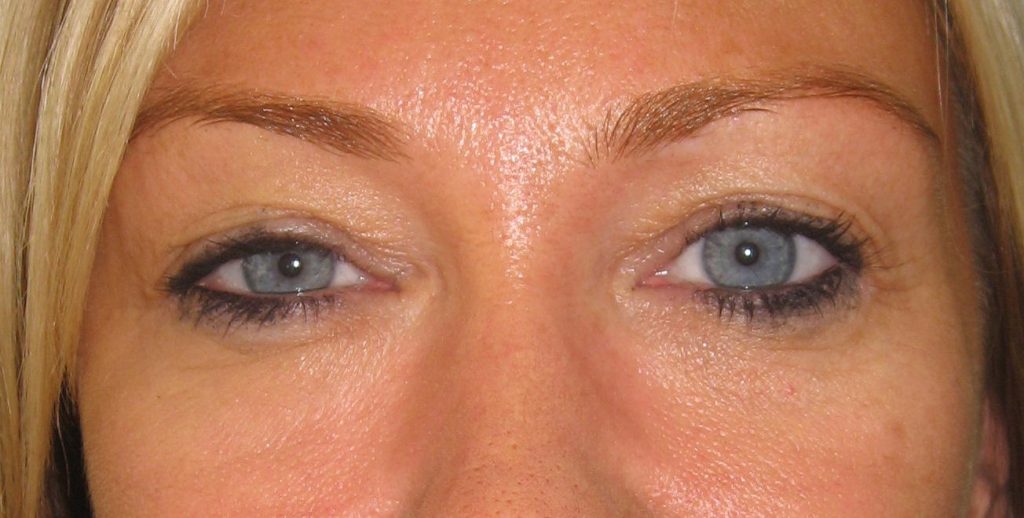
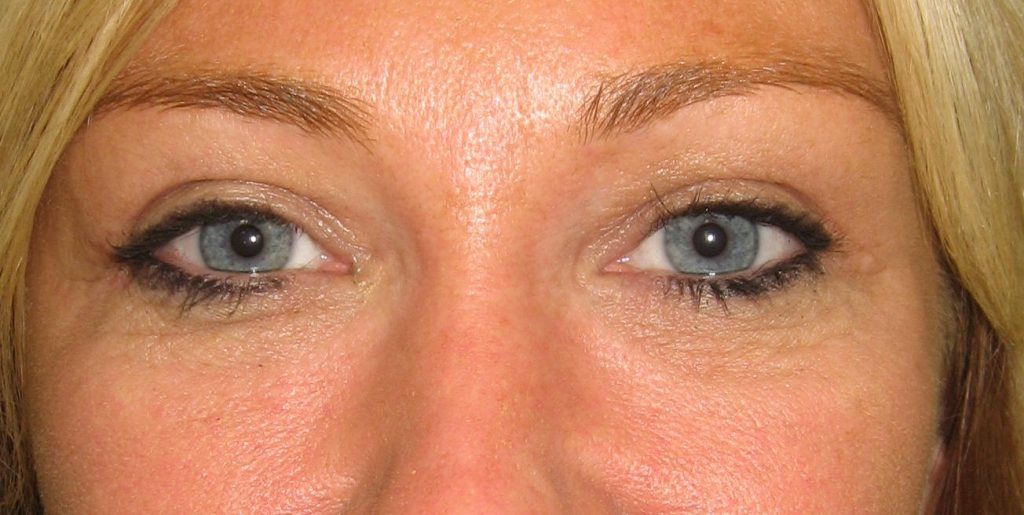
The Blepharoplasty Surgery
When you have a blepharoplasty in Manchester, it usually takes between 1 and 2 hours. For upper blepharoplasty an incision is made in the crease of the upper lid. For lower blepharoplasty, an incision may be made on the skin below your lashes or within the eye. Skin is usually removed as required and the fat deposits may be reduced, removed or repositioned. The skin is sutured and some steristrips are often applied. The specifics of your particular blepharoplasty surgery will be discussed during a consultation with your surgeon in Manchester.
After Blepharoplasty Surgery in Manchester
You will usually return to the ward within an hour following blepharoplasty surgery in Manchester. You will be able to drink and eat and mobilise. You will feel swollen and have bruising and discomfort that may require analgesia. You may be able to go home on the same day and should keep the wounds dry for the next week. You should keep your head upright and avoid hot baths. You will be given an ice pack to place over your eyes and you should keep this in place for the first 24-48 hours.
You should arrange for someone to pick you up following your eyelid surgery in Manchester and have some support at home when you are discharged. You may experience either dry or watery eyes and occasionally you will feel a sensation of grittiness for a few days/weeks afterwards. You should avoid wearing contact lenses for 2 weeks although for lower lid blepharoplasty this should be extended to 4 weeks. You will be reviewed in the clinic and the eyes checked at a week and any stitches removed. The final results of blepharoplasty surgery in Manchester can take a few months to become apparent. The scars can be red initially but usually fade over time and usually fade to become a white line.
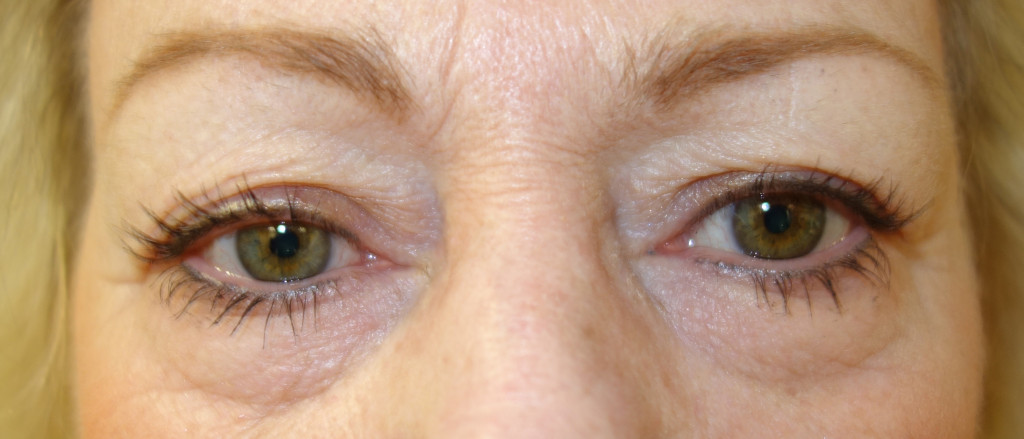
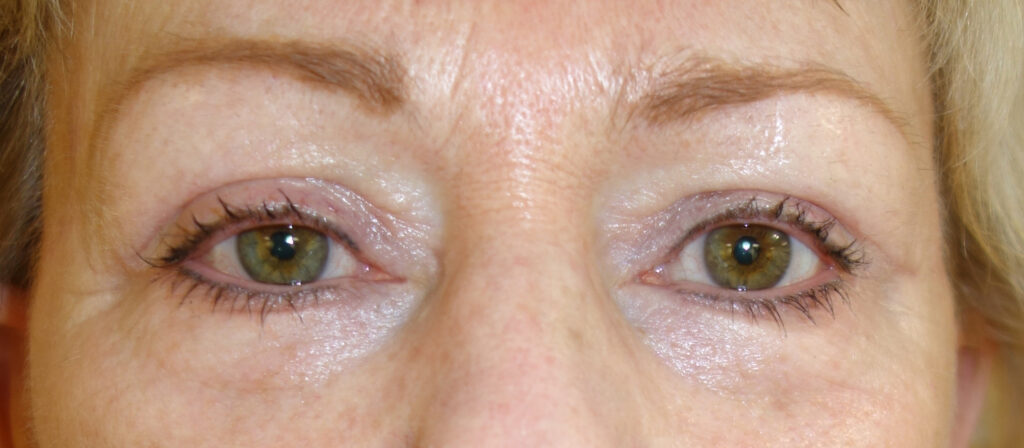
Risks And Complications of Blepharoplasty Surgery
The vast majority of patients are delighted with the results of their blepharoplasty surgery in Manchester, although common complaints include bruising, swelling and dry/watery eyes. Chemosis and conjunctivitis are usually temporary but can occur especially with lower eyelid surgery. Uncommon complications include infection, haematoma/persistent bleeding, delayed healing/skin necrosis, irregularities, and thickened scars. It is also uncommon to have drooping of the eyes (ectropion) and although blurring of vision can occur permanent changes to vision such as double vision or blindness are extremely rare.
The pictures show a patient who underwent upper and lower blepharoplasty surgery. This lady developed chemosis and conjunctivitis and a slight drop of her lower lid a week postoperatively. She was seen weekly as this recovered and pictures are shown at 1, 2 and 3 weeks post op through the recovery phase. The final result is shown at a year for comparison. To see more examples, view our blepharoplasty case studies.
Finally there are also uncommon risks of general anesthesia such as respiratory/cardiac compromise and deep vein thrombosis. Again, all risks will be discussed during a blepharoplasty surgery consultation in Manchester.
Why Choose Gary Ross MBChB, MD, FRCS, (Plast) For Your Blepharoplasty in Manchester
Gary Ross is a full member of the British Association of Plastic, Reconstructive and Aesthetic Surgeons (BAPRAS); British Association of Aesthetic Plastic Surgeons (BAAPS), American Society of Plastic Surgeons (ASPS), Association of Breast Surgeons (ABS), British Association of Head and Neck Oncologists (BAHNO) and is a fully accredited plastic surgeon on the General Medical Council’s specialist register for plastic surgery. Gary Ross is a highly experienced Blepharoplasty surgeon in Manchester, so you will be in the safest environment possible for your procedure.
Blepharoplasty surgery is suitable for people who have excess skin or fat deposits around the eye area. As well as being a cosmetic blemish, excess eyelid skin can also interfere with vision, which can be rectified with blepharoplasty surgery. Blepharoplasty surgery is not suitable for people who have unrealistic expectations for the procedure, or those with a deep medical history. Any health concerns must be disclosed to your blepharoplasty surgeon in Manchester to make sure that you are the right candidate for the surgery.
The main benefit for the majority of people opting to have blepharoplasty surgery is the aesthetic improvements. The eye area looks more youthful, the eye shape becomes more enhanced and the patient generally looks more alert. From a functional point of view, eyelid surgery can help to remove excess skin that can cause vision problems, as well as skin irritation caused by the excess folds of skin on the eye.
Lower blepharoplasty surgery involves removing or repositioning the fat underneath the eyes, as well as the removal or tightening of excess skin underneath the eyes. This involves making an incision below your eyelashes or within the eye itself. This procedure can help to make the patient look more youthful, less tired and there is also minimal scarring.
